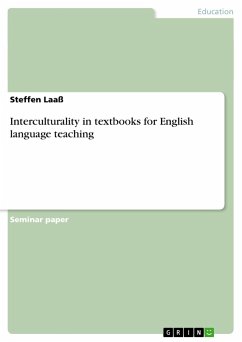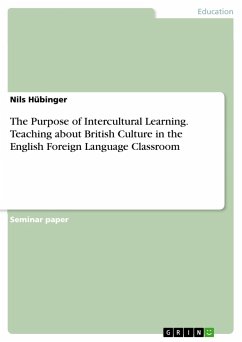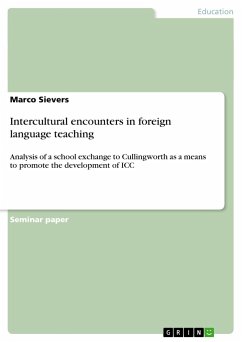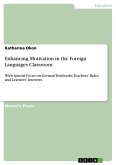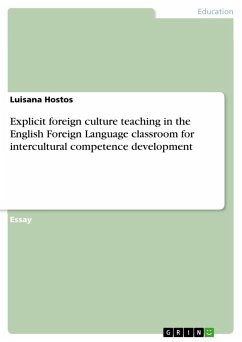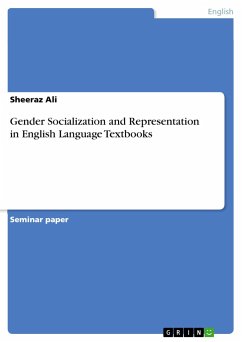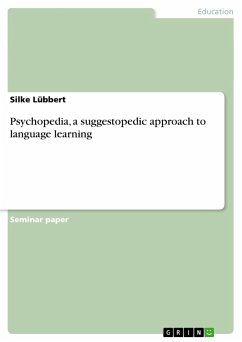Seminar paper from the year 2007 in the subject Didactics - English - Pedagogy, Literature Studies, grade: 1,3, Otto-von-Guericke-University Magdeburg (Institut für fremdsprachliche Philologien), course: Intercultural Learning, language: English, abstract: Intercultural Learning and Intercultural Competence are ubiquitous buzzwords that have been used in the sphere of English teaching and learning for more than two decades now. It has been recognized that modern language teaching goes far beyond the acquisition of grammar and vocabulary alone. As students progress in their study of the foreign language, it is expected that they extend their knowledge and broaden their awareness about the target culture's characteristics and peculiarities. Theoretically, the creative implementation of Intercultural Learning could, if intelligently put into practice, have also led to an 'overthrow' of outdated teaching methods that, as a rule, emphasise pure cognition rather than communication or interaction. Unfortunately, the initial euphoria has gone and only little has changed in German classrooms. Still, interculturality is often taught in a way that appears uninteresting and ineffective, that is mainly based on facts and figures, and therefore rendering English sometimes not particularly popular as a subject among students. The reasons for this situation are manifold. Teachers (and students) know too little about Intercultural Learning because it is a concept too fuzzy, vague, abstract and indefinite so as to be grasped immediately. It may also be due to the apparent lack or shortage of suitable learning and teaching materials that can be used in day-to-day school life. Luckily, current textbooks increasingly include creative aspects of interculturality. But how useful and fruitful are these modest 'intercultural elements' in practice?In this paper, I will analyse two German textbooks used in institutional English teaching and learning nationwide and scrutinise them from an intercultural point of view. Before that, I will carry out a brief but thorough investigation into the notion of 'Intercultural Learning' (abbreviated to IL). I will then look into general functions of school textbooks as the primary teaching instrument, followed by a critical description and analysis of Green Line 5 (Klett) and English G 2000 D5 (Cornelsen).
Bitte wählen Sie Ihr Anliegen aus.
Rechnungen
Retourenschein anfordern
Bestellstatus
Storno

